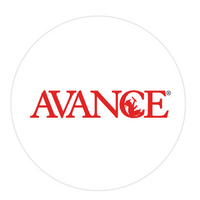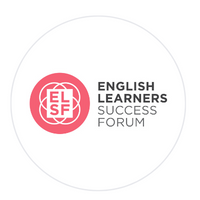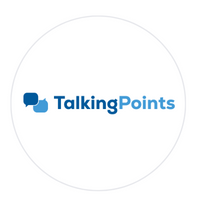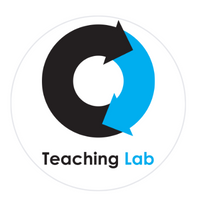New Profit Invests in Five Social Impact Organizations Transforming the Education and Economic Systems in America
These nonprofits are led by visionary social entrepreneurs, creating innovative solutions to long-standing challenges alongside students, parents, teachers, and workers.
March 2, 2023New Profit, the venture philanthropy organization, announced today an investment of $5M across five nonprofit organizations addressing economic and educational inequities in communities and school systems throughout the country. These investments are part of New Profit’s ongoing efforts to expand its portfolio of high-impact organizations led by visionary entrepreneurs who center the assets, expertise, and aspirations of the communities they serve.
The unrestricted funding is coupled with tailored capacity-building support over a four-year term to help each organization deepen its impact, broaden its scale, and drive systems-level change. Keep reading to learn more about each organization:
AVANCE
AVANCE provides a strengths-based, culturally responsive, multi-generational approach to economic mobility for low-income Latinx families.
Building a more equitable economy and infrastructure within the United States requires a collective commitment to strengthen families and address intergenerational poverty. According to a 2020 study by the US Census Bureau, 16% of children live in poverty, with Latine/x children disproportionately impacted at a 23% poverty rate. A 2018 National Conference of State Legislatures report noted that “the well-being of parents is crucial to their children’s social-emotional, physical, and economic well-being. And, at the same time, parents’ ability to succeed in school and the workplace is substantially affected by how well their children are doing.”
In 2019, Dr. Teresa Granillo took over as CEO of AVANCE. Dr. Granello’s 20+ years of experience, along with the belief that those closest to the issues in a community are those best suited to address them, have helped to stabilize AVANCE, revisiting its theory of change and setting it on a growth path. Under her turnaround leadership, AVANCE’s leadership has evolved into a unique group of individuals that share the racial/ethnic background and lived experiences of the communities AVANCE serves.
AVANCE believes that breaking cycles of poverty requires creating pathways to economic mobility via a two-generation approach. Their model drives change at multiple levels by working with children, their parents, and their childcare workers using a strengths-based, culturally responsive practice. In addition to working directly with families on school readiness, AVANCE also supports parents and childcare providers with building social and economic capital.
A 2018-2019 evaluation of AVANCE’s signature Parent-Child Education Program (PCEP) found that AVANCE had an 80% graduation rate, with 1,098 participants graduating. Of those graduates, 94% increased their knowledge of child development and parenting skills, and 95% reported that they read to their children at least three times a week; as revealed in the 2018-2019 Child Trends evaluation, 81% of AVANCE’s parents who graduated from the PCEP program planned to attend at least one type of continuing education.
Black Teacher Collaborative
Black Teacher Collaborative (BTC) develops and delivers resources that support Black educators in the South with the tools and community they need to maximize their impact on elementary and secondary Black students.
Black students have better academic outcomes when taught in learning environments led by Black teachers. Studies show that Black children who experience one Black teacher before third grade are 13 percent more likely to attend college. Black children with two Black teachers are 32 percent more likely to attend college. In addition, Black students from low-income households are 29 percent less likely to drop out of school after experiencing one Black teacher; the rate drops by 39 percent for very low-income households.
However, many Black students attending public schools in the United States have never experienced a Black teacher in their classrooms. Nationwide Black students comprise about 15 percent of the U.S. public school population, and only 7 percent of their educators are Black. Most of this population, over 60 percent of Black students and 82 percent of Black Teachers, are located in the South.
Dedicated to bolstering the prevailing research and literature on educating Black children, Black Teacher Collaborative (BTC) has prioritized supporting Black educators in the South while developing an accessible evidence base to support Black educators and students across the nation.
Hiewet Senghor is the founder and CEO of Black Teacher Collaborative. She is uniquely positioned to bring the important and innovative work of BTC to life, leveraging her years of advancing the political and social conditions of Black people through traditional Civil Rights organizations like the NAACP and the Children’s Defense Fund, along with her solid grounding in the power and perils of education reform gained through six years in leadership at Teach for America.
BTC is in the early stages of a substantial measurement initiative. Beyond developing evidence of the value of its support model, BTC aspires to expand knowledge of how the presence of well-trained Black teachers can influence the racial identity, emotional health, and intellectual development of Black students. This is a complex conceptual and measurement undertaking, but one that offers the promise of providing new evidence about how to help Black students succeed.
English Learners Success Forum
English Learners Success Forum (ELSF) is expanding educational equity for a large, fast-growing and underserved segment of the K-12 student population by becoming the field expert in making high-quality instructional materials accessible to and inclusive of multilingual learners.
While the adoption and implementation of more rigorous academic standards has become a focal point for districts across the country, and educational systems have been transforming their teacher professional learning and instructional materials to align to these standards, few resources and instructional approaches are inclusive of the needs of the 5 million (and growing) K-12 multilingual learners. The majority of multilingual learners have made no progress in academic achievement in English Language Arts (ELA) and Math relative to white students in the last 20 years.
ELSF targets (1) the supply of high-quality instructional materials by working with content developers and publishers, and (2) the demand for high-quality instructional materials by educating curriculum adoption decision-makers on the selection of instructional materials and partnering with professional learning providers that guide the adoption process. They engage the full ecosystem of multilingual learners supports in instructional materials: content developers and publishers, state education agencies (prioritizing states with a high and growing multilingual learner population and favorable multilingual learner policies) and professional learning organizations. Currently, their services and tools focus on grade-level ELA, math and, most recently, science.
Crystal Gonzales is the Executive Director of ELSF, a role in which she has become a field leader through her collaboration with national experts, organizations, educators and content developers to increase the supply of high-quality K-12 instructional materials that meet the needs of the growing multilingual learner population.
In the last five years, ELSF has worked with 19 content developers, many of which have materials in all 50 states impacting 9,000 school districts and nearly 25 million students, to improve their products by making them inclusive of multilingual learners.
TalkingPoints
TalkingPoints is a technology solution that facilitates more effective engagement between educators and families of underserved students, offering an easily accessible engagement tool that provides seamless two-way communication and scaffolded support in over 145 languages.
Eighty percent of public school students in the United States come from low-income or immigrant families. These students fall behind their peers by up to two years, an inequity that has been further exacerbated by the pandemic. At the same time, research has shown that a family’s level of engagement in their child’s education predicts their child’s academic success twice as much as the family’s socioeconomic status. Yet family-school partnerships are estimated to occur half as often in under-resourced and multilingual communities, often due to barriers like language, capacity, and mindsets.
Heejae Lim is the Founder and CEO of TalkingPoints. As a young immigrant to the United Kingdom from Korea, her mother was able to use her limited English to connect with her teachers and support her education, and she saw the advantage this gave her over peers whose parents weren’t able to communicate with their teachers. In this way, she is deeply proximate to the challenge TalkingPoints addresses.
TalkingPoints created a tool that facilitates seamless communication between families and educators in over 145 languages and has built a set of services around the tool which build even stronger family engagement. By making family engagement easier, more accessible, and more effective, students are better supported both in school and at home, and therefore have stronger learning outcomes.
In its first 5 years, TalkingPoints grew to 500,000 users, primarily through word of mouth. The arrival of COVID and remote learning led to exponential growth to 3 million users annually by 2022. While TalkingPoints has just begun to assess the data it has collected through this rapid growth in adoption, a recent research study using a quasi-experimental method found that the use of TalkingPoints led to increased academic outcomes and attendance with greater impacts for traditionally underserved students. The average student gained 2,000 additional minutes of learning per year and 7.3 additional months of learning in math.
Teaching Lab
Teaching Lab (TL) is a leader in the field of professional learning for teachers, and its goal is to get evidence into practice in a way that teachers can understand, embrace, and love.
Recent research shows that well-designed teacher professional learning can improve both teacher practice and student learning. Unfortunately, few approaches to professional learning support teachers to get this research into practice.
Teaching Lab is working to address these issues under the leadership of Dr. Sarah Johnson. Sarah has a long history with the organization, first as the organization’s Board Chair in 2017. In 2018, Sarah transitioned to become the organization’s CEO. As an accomplished high school teacher, and district leader, Sarah knows firsthand what is required to professionalize teaching and seeks to ensure that every teacher in the nation has a high-impact year of learning every year of their career.
Teaching Lab’s core professional learning model, coined Head, Heart, Habits, and Equity, supports teachers to learn evidence-based practices, builds teacher leadership, and supports systems to sustain strong professional learning systems over time. Under this model, Teaching Lab provides two main offerings: direct professional education for teachers, school leaders, and district leaders, and capacity-building supports at the district and state levels to create conditions necessary to make this kind of high-quality professional learning possible.
Teaching Lab’s programmatic reach has seen steady annual growth. Over the last five years, Teaching Lab has supported school systems in 27 states, impacting 10,000+ educators and 1 million students. Teaching Lab has also begun to track improvements in student learning. For instance, by analyzing summative state assessment data, they found that Teaching Lab teachers improved student learning at higher levels compared to teachers who did not receive Teaching Lab services. Additionally, across the nation, students improved their assignment proficiency rates by 12% in ELA and 11% in math.
These five organizations join a portfolio of nonprofit organizations led by visionary social entrepreneurs advancing opportunity in America. As New Profit celebrates its 25th anniversary in 2023, we are proud to back leaders who are creating transformational change in education, economic mobility, and democracy. Last year, New Profit made investments in 48 organizations as part of its Catalyze Investments portfolio and 8 investments as part of its Build Investments portfolio. Learn more by exploring New Profit’s 2022 Digital Annual Report.
About New Profit
New Profit is a venture philanthropy organization that backs social entrepreneurs who are advancing equity and opportunity in America. New Profit exists to build a bridge between these leaders and a community of philanthropists who are committed to catalyzing their impact. New Profit provides unrestricted grants and strategic support to a portfolio of organizations led by visionary social entrepreneurs to increase their impact, scale, and sustainability. It also partners with social entrepreneurs and other cross-sector leaders to shift how government and philanthropy pursue social change to ensure that all people can thrive. Since its founding in 1998, New Profit has invested over $350M in 200+ organizations and, through the America Forward Coalition’s collective advocacy efforts, has unlocked over $1.9B in government funding for social innovation. Learn more at www.newprofit.org.
###
For media inquiries:
Nikhil Gehani
Partner, Communications
+12483881630




